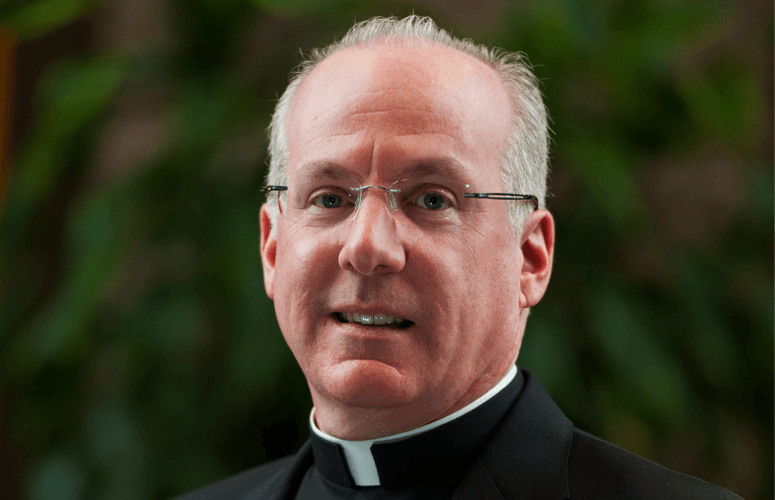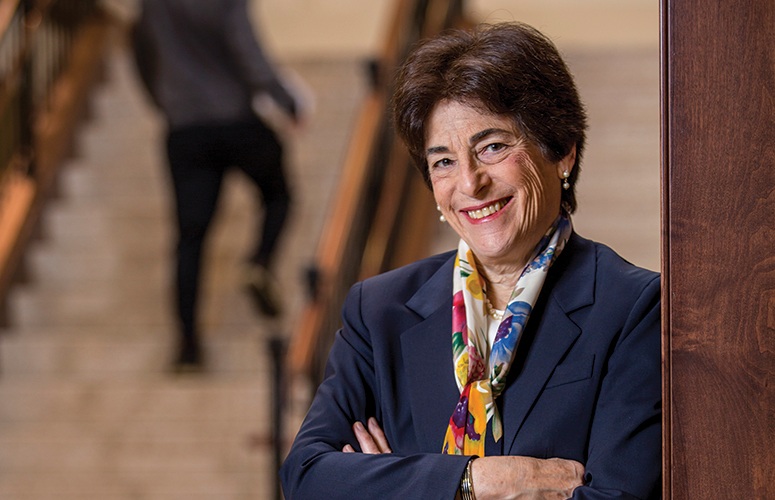
A Council of Leadership and Learning
New Jersey Presidents’ Council assists Secretary of Higher Education in order to deliver a robust learning system for all.
By Larry Feld, Contributing Writer On Jan 4, 2024Businesses depend on New Jersey’s higher education system to educate the highly skilled workforce needed for today and tomorrow’s challenges. To provide administrative oversight, Gov. Phil Murphy depends upon Secretary of Higher Education Dr. Brian Bridges to drive higher education’s progress.
“I am essentially the regulator of higher education within the state,” notes Dr. Bridges. “I see my role as serving as a conduit between the colleges and universities and Governor Murphy’s administration to try to work collaboratively and advance our education system in order to leave it better than how we found it.”
It would be nearly impossible for the Secretary to effectively seek the input of the state’s nearly 100 colleges and universities without some cohesive structure.
Enter the Higher Education Restructuring Act of 1994, which established the New Jersey Presidents’ Council (NJPC). The council is comprised of representative leadership from all of New Jersey’s public, private (including religious), and community colleges and universities.
NJPC’s Mission
According to Dr. Anthony Iacono, president of the County College of Morris, the current chairman of the NJPC and a trustee of the New Jersey Business & Industry Association (NJBIA), the role of the council is to “bring all of the two- and four-year institutions together, so that we can collaboratively advocate for higher education in New Jersey in order to ensure that we are reaching all residents in a way that is high quality and accessible.”
The NJPC develops and refines curriculum and helps the office of the Secretary of Higher Education with regional alliances, budgets, and student aid levels. The NJPC also assists in updating the statewide higher education master plan to improve educational outcomes for all residents.
The council meets quarterly as a whole, with the Secretary in attendance to listen as well as update members on relevant Trenton business. Council leadership, consisting of the president and executive board, meets five or six times a year, while the five committees have their unique schedule of business.
Dr. Iacono and the council maintain a close relationship with the Secretary. “We work predominantly in an advisory capacity,” he says. “There is a continuous dialogue between the chairman and the Secretary, as well as other statewide organizations.”
One of the most active NJPC committees is the Academic Issues Committee (AIC), which reviews and makes recommendations regarding new academic degree program proposals, changes in academic programs, institutional licensure, and university status. Dr. Bridge’s office also looks to the AIC to make recommendations regarding licensure and re-licensure of institutions, new branch campuses, as well institutions seeking conversion to university status.
Leadership Under Adverse Conditions
Higher education has faced dramatic changes in the last few years, from health and wellness issues stemming from the pandemic to remote teaching challenges, as well as declining college enrollments nationwide. Overshadowing all of this is the shifting public attitude toward the value and affordability of a college education.
“Fundamentally, our role has not changed,” notes Iacono. “It still comes down to: Are we offering what New Jersey residents want and need? Are we doing it in an efficient and effective manner?”
While Dr. Bridges admits New Jersey’s colleges are grappling with the same trends that institutions around the country face, he remains confident about the state’s institutions due to the governor’s support for higher education. “Governor Murphy has invested more in higher education than the several previous governors combined,” he states. However, he cautions that inflation is real and “our institutions are feeling it.”
Tackling the Top Public Policy Initiatives
According to Dr. Iacono, the primary focus of the council is to ensure access to the state’s institutions. “All New Jersey residents need to know who we are and what we offer,” he says. “We are not identical by any stretch.” He also stresses the importance of publicizing the programs that the state’s institutions of higher education offer. “It takes a great deal of partnering,” he says.
“At County College of Morris, for example, we have Rutgers on campus offering baccalaureate degrees. That is an accessibility issue. There’s a whole myriad of different combinations that we engage in to make sure higher education is accessible,” he says.
Another issue is affordability. Dr. Iacono notes that community colleges, with the help of the Legislature and the Governor’s Office, introduced the Community College Opportunity Grant. “This is a last-mile scholarship so that students who need and qualify for financial support can receive it,” Dr. Iacono notes, adding that the version of that grant for public senior institutions is called the Garden State Guarantee.
There is a larger issue: The value proposition of higher education. Dr. Bridges feels the state’s new affordability programs are addressing this issue head-on. “People are questioning the value of education because of the cost. We need to make college more affordable, and [then] I think that some of that noise will go away,” he surmises.
“We are also working with the council on equity and access through our New Jersey College Promise initiative,” he notes. This program, administered by the Higher Education Student Assistance Authority (HESAA), offers grants and other assistance to low- and middle-income students to pay for all or most of their tuition obligations.
Business Connections and Workforce Development
To help nontraditional students and employees seeking workforce skills enhancement, colleges are offering certificate programs in everything from medical tech and AI to data analytics and cyber security. “We are seeing a blurring of the lines between certificate programs and core education,” Dr. Iacono notes.
The great pandemic caused over a million Americans to lose their jobs. In response, council members are adapting their offerings. “Thomas Edison, for example, is predominantly online and is designed for working adults. We are seeing a lot of career-changers; people looking to do something different,” says Dr. Iacono.
The new normal also includes compressing some 15-week semesters into eight weeks. “A lot of things are different because the world is different. We are seeing students using food pantries and needing help with childcare, so they can stay in school,” Dr. Iacono notes.
At the same time, the New Jersey Community College Consortium for Workforce & Economic Development (njworkforce.org) is providing employers with skills training for incumbent or prospective employees. It also helps veterans and the unemployed find training needed to land jobs.
The business community is expecting different skill sets from people coming out of college. “The evolving workforce will create some shifts around how we look at higher education and how we value it,” Dr. Bridges explains.
To access more business news, visit NJB News Now.
Related Articles:





